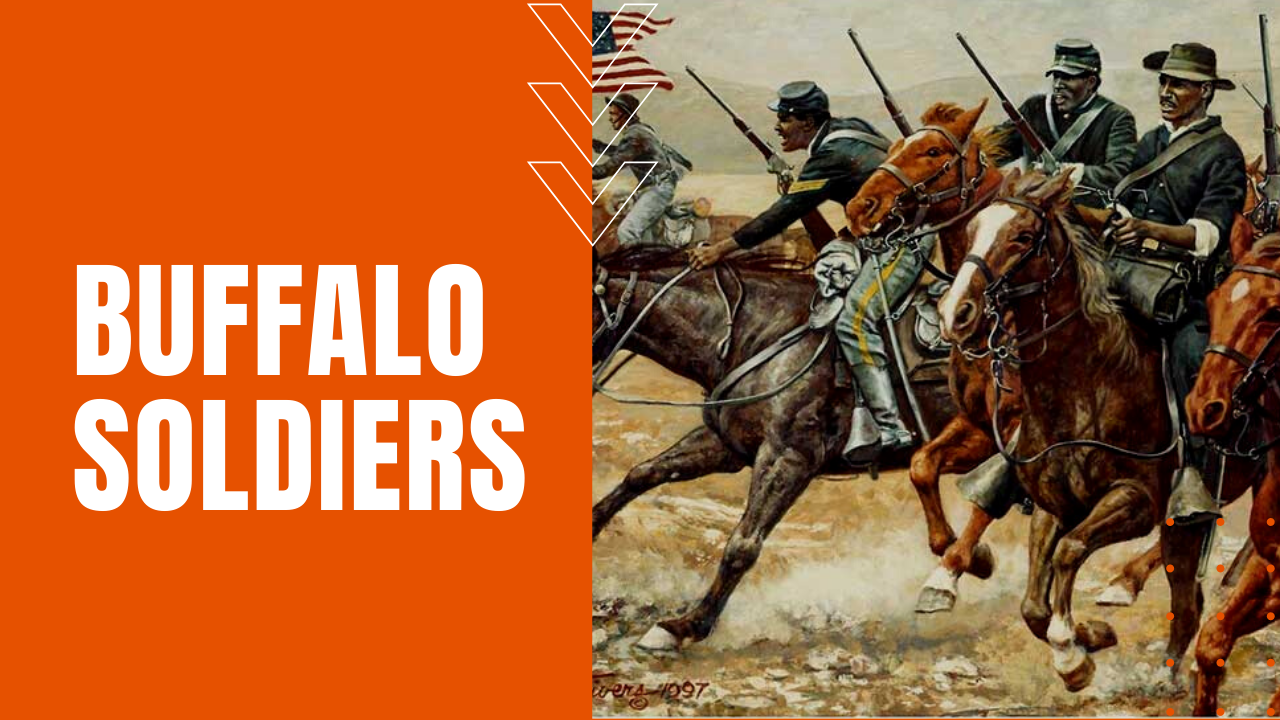Buffalo Soldiers

Originally members of the all-black 10th Cavalry Regiment of the United States Army, the group that would later become known as Buffalo Soldiers formed on September 21st, 1866 at Fort Leavenworth Kansas.
How Did Buffalo Soldiers get Their Name?
The nickname Buffalo Soldiers was given to the black cavalry by native American tribes who fought against them in the Indian Wars, which became synonymous with all the African American regiments formed during and after 1866, including the 9th and 10th Calvary Regiments and the 24th, 25th and Second 38th Infantry regiments.
Buffalo Soldiers would see action in the Indian Wars, the Johnson County Land War of 1892 and the Spanish-American War of 1898, including the Battle of San Juan Hill in Cuba.
While the 9th and 10th Cavalry Regiments were mostly disbanded by the start of World War Two, the 92nd Infantry Division, known as the Buffalo Division, saw combat during the Italian Campaign, while the 93rd and 25th Infantry Regiments saw combat in the Pacific Theater of Operations.
Separately, independent black artillery, tank and tank destroyer battalions, as well as quartermaster and support battalions also served in World War Two, each outfit carrying out the traditions of Buffalo Soldiers. Despite official resistance and administrative barriers, black airmen were trained and played a key part in the air war in Europe, gaining a reputation for skill and bravery beyond compare.
In early 1945, after heavy losses during the Battle of the Bulge, American forces in Europe experienced a shortage of combat troops, which eventually relaxed the embargo on black soldiers in combat. By war’s end, a total of 909,000 black Americans would participate in the Second World War.
Desegregation of the Military
In 1948, President Harry S. Truman signed Executive Order 9981, which desegregated the military and marked the first federal legislation that went against the societal norms implemented through Jim Crow laws.
During the Korean War, black and white troops operated in integrated units for the first time, while the Buffalo Soldier’s 24th Infantry Regiment was the last segregated regiment to engage in combat, until the 24th was deactivated in 1951. On December 12th of that same year, the last Buffalo Soldier units, the 27th and 28th Cavalry, were disbanded, marking the close of the proud legacy of the Buffalo Soldiers for a full 85 years of American military history.
